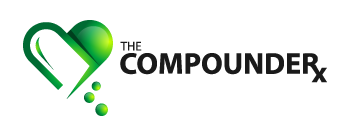Before I share the top three worst, I want to reiterate my basic concern about excess drug use. Of course, the people taking the drugs are at risk for harmful side effects. But, probably more importantly, those of us who don’t take drugs directly can also suffer side effects from the tons of drugs routinely dumped into our drinking water supply.
As much as we’d prefer it, drugs do not get “used up” or inactivated in the body of the person who used it on purpose. Metabolized drugs can even have more toxicity than the original. Regardless of the precise mechanisms, our water supply is becoming increasingly contaminated with excreted drugs.
The drugs and chemicals in our water remain in the water because our water treatment systems are incapable of removing them. Why doesn’t the government report on the levels of drugs in the water? They’d probably have to if they actually tested for them. Rather than alarm us with facts, they merely decide to not do the test. That means there are many chemicals getting into our bodies that we don’t know about – and that nobody wants to tell us about. This will only be reversed when we all stop taking so many drugs – or stop urinating and defecating. Any volunteers?
Back to the main topic, the top three worst drugs.
First on my list are the statin drugs. These chemicals are offered to practically everyone. It seems that the accepted cholesterol levels fall a little every year – meaning that more and more of us are prescribed drugs to meet those lower levels. Cholesterol has not been shown to cause any illness, yet we all seem fixated on our blood levels and how to push them lower and lower. Statin use is unnecessarily high and it’s hurting all of us.
The FDA recently announced that the highest dose statin pills should only be used with extreme caution. There is a high risk of myopathy (muscle weakness), liver damage, and joint pain that is particularly associated with the highest dose pill, the one that’s 80mg. The serious side effects are not just associated with that one strength pill. They are also found in people taking lower doses, especially if they have been using them for extended periods of time. That’s practically everyone who takes statins – and then a bunch of us who are getting our doses from the water supply.
Second in line are the PPI drugs (Proton Pump Inhibitors). These are the drugs used to reduce the levels of acid in our stomach. Somehow we’ve gotten the idea (false, by the way) that our heartburn and GERD are CAUSED by too much acid. That’s why the drug makers have been selling us toxic chemicals (PPIs) designed to block the formation and release of acid.
Truth be told, acid reflux happens when the digestive systems pushes and squeezes our stomach contents – probably in response to insufficient acid and digestive juice – and some of the acidic material gets up into our esophagus. The actual treatment and prevention of gastric reflux is to INCREASE acid, the use of digestive enzymes, and consuming plenty of clean water – not coffee, tea, soda pop, fruit juice, or milk. Just water – perhaps with a tablespoon of lemon juice. Using PPIs hampers our ability to digest food and extract nutrients. In addition, they can become a habit. But, it seems far easier to swallow a PPI than to eat correctly.
Third are the hormone drugs – especially the estrogens (menopause hormones and birth control pills) and environmental substances that mimic estrogen activity in our body (soy, plasticizers, pesticides, to name just a few). There are numerous articles that explain the potential risks associated with consumption of synthetic hormone replacement drugs. Even cancer has been directly associated with estrogen and estrogen activity.
While bio-identical hormones have become “all the rage”, there is evidence that they are generally no safer than the commercial versions. In the case of cancer, for example, it is likely that estrogen can stimulate the growth of cancer cells – in the people who take it intentionally and those of us who get it second hand (unknowingly). Estrogen makes cells grow – it can make us fat. It can cause anxiety and many of the symptoms associated with menopause. It is associated with anxiety and depression. It can counteract the effect of testosterone and be responsible for the feminizing of men – low sperm counts are probably associated with estrogen activity.
There you have it. The top three worst drugs. I avoid them and my fervent hope is that more and more people will do likewise.
